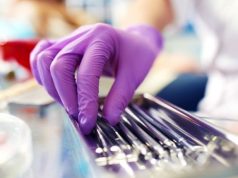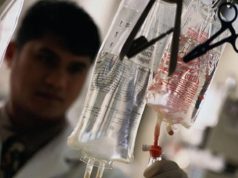Frequent handwashing may reduce likelihood of novel strain introduction into the household
WEDNESDAY, Nov. 27, 2019 (HealthDay News) — The household environment plays a key role in the acquisition of methicillin-resistant Staphylococcus aureus (MRSA) skin and soft tissue infection, according to a study published online Nov. 26 in The Lancet Infectious Diseases.
Ryan L. Mork, Ph.D., from the University of Chicago, and colleagues examined household longitudinal strain-level Staphylococcus aureus transmission dynamics in households of children with community-associated MRSA skin and soft tissue infection. A total of 1,267 strain acquisition events were observed across household members, pets, and environmental surfaces.
The researchers found that acquisitions were driven by 510 introductions of novel strains into households and 602 transmissions within households, each associated with distinct factors. The likelihood of novel strain introduction into the household was reduced with frequent handwashing (odds ratio, 0.86; credible interval [CrI], 0.74 to 1.01). Transmission recipients were more likely to share bedrooms with strain-colonized individuals, live in homes with higher environmental S. aureus contamination burden, and report interval skin and soft tissue infection (odds ratios, 1.33 [CrI, 1.12 to 1.58], 3.97 [CrI, 1.96 to 8.20], and 1.32 [CrI, 1.07 to 1.64], respectively); they were less likely to own their own homes (odds ratio, 0.77; CrI, 0.63 to 0.94). Sources of transmission were more likely to share bath towels (odds ratio, 1.25; CrI, 1.01 to 1.57). Pets were rarely the only transmission source.
“Introductions and transmission could be mitigated through straightforward changes in household practices, including frequent handwashing and modified sharing behaviors,” the authors write.
Copyright © 2019 HealthDay. All rights reserved.








